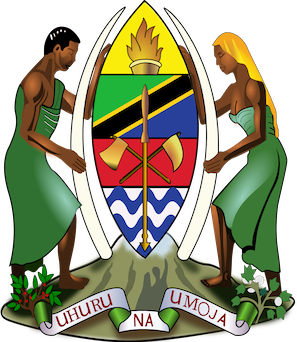MILLIONS of Tanzanian smallholder farmers complain when their farms produce little or no crop yield.
The irony is that very often the farmers and their extension officers pay little attention to having the soil of their plots tested. The excuse, albeit justified, is that testing the health of the soil is a distant dream.
This excuse will not be acceptable in future because of the technology imported from The Netherlands.
Tanzania now has a mobile soil testing laboratory that uses Dutch technology known as electromagnetic. This technology is championed by a private company, the Arushabased Life Support Systems Tanzania Limited (LSST). The laboratory tests have the potential to increase Tanzania’s agricultural production.
But the situation will change very fast if the use of mobile soil testing laboratory will be popularised by district councils and district agricultural development officers and encouraging farmers to test the health of the soil of their plots.
Testing the soil of a farm will cost between 25,000/-and 30,000/- Dutch Vice-Minister of Agriculture and Food Quality Marjolijn Sonnema said she was excited to witness the launch of the mobile laboratory and her country was keen on being part of the process that would transform smallholder farming.
The minister was in the country to sign a memorandum of understanding (MoU), between Tanzania and her country on aquaculture and poultry deputy Minister for Livestock and Fisheries AbdallahUlega and Ms Sonnema signed the document. Under the agreement, Tanzanians will get training in The Netherlands on how to increase productivity in poultry and aquaculture.
It will also benefit Tanzanians dedicating themselves to raising domesticated birds such as ducks, chickens, geese and turkeys. Chicken keeping is most popular in Tanzania, followed by ducks, and then turkeys and geese.
If the agreement is well implemented, then duck keeping will increase, turkey and geese keeping will be more popular than is the case at the moment.
In a recent interview, LSST Managing Director, Dr Edmond Matafu, said electromagnetic technology was quite new and was capable of suggesting the kind of crops to be grown and the farm inputs that suited the soil offered by a farmer for testing.
On the day the laboratory was launched in July, Dr Matafu told Mr Ulega, who was the guest of honour, that the new testing kit was also able to suggest the type of farm inputs that could be added to the soil before planting. Why is soil testing such a big happening in Tanzania’s history?
The answer is not hard to see. Smallholder farmers in Tanzania are more than just millions of tillers land.
Their toil feeds this nation of 55 million plus and now they carry the burden of producing quality farm products for Tanzania’s industries.
Surplus food and cash crops produced by them will continue being exported to bring in foreign currency.
Latest figures show that agriculture produces 65 percent of raw materials needed by local industries and contributes 30 percent of export earning to national coffers.
Therefore, to uplift the lives of smallholder farmers, who mainly live in rural areas, is a big deal in the country.
United Nations agencies such as Food and Agriculture Organisation (FAO) and United Nations Conference on Trade and Development (UNCTAD), too emphasise this fact.
The agencies want to see a linkage between the agricultural sector and other sectors of the economy.
For example, UNCTAD calls for a linkage between agriculture and tourism enhanced by improving agricultural practices in the country.
In 2015 UNCTAD conducted a study in the country and in its report it said: “Tourism and agriculture have an important and distinct contribution to make to local economic development.
Many developing nations that are now experiencing rapid tourism growth have agrarian societies and tourism is the first or second source of export earnings.
For example, 20 out of the world’s 48 least developed countries rely on tourism, and agriculture remains the source of livelihoods of most inhabitants.
It is imperative, therefore, to pay close attention to tourism and agriculture relationships…”
The agency says Tanzania’s climate and soil give the country a comparative advantage in farming a variety of crops, as well as in horticulture and floriculture.
“The country has 15 million hectares of arable land (out of which 2 million hectares are under permanent cropping) and 33 million hectares of forest.”
Tanzania wants to become an industrial country by the end of next December and become a middle-income economy by 2025.
These are huge ambitions, but achievable. With a typical agrarian society, Tanzania has no option for an agro-industrial approach towards industrialisation.
It must have primarily agro-industries that process farm products produced locally. The agro-industrial approach has always necessitated various forms of bilateral and multilateral cooperation.
With this in mind, then the Tanzania-Dutch cooperation comes makes a lot of sense. For example, fish farming can be popularised countrywide using non-state actors to improve national nutrition and increase regional exports.
Experts say that fish farming involves raising fish commercially in tanks or enclosures such as fish ponds, usually for food. Farmer groups and associations should be mobilised and helped to engage in fish farming.
District councils should encourage, not discourage, small farmer groups struggling to make the lives of their members better.
Officials in the Ministry of Livestock and Fisheries should walk the talk and work with groups that are eager to fishing farming.
It is common for district officers to pay lip-service to leaders of the farmer groups eager or involved in aquaculture and those involved in the raising of domesticated birds.
This is absurd because the FAO says fish farming is considered by some economic experts to be a lucrative venture in Tanzania.
Unless this reported attitude changes, fish farming will remain, as FAO says, a largely part-time activity and poor Tanzanians will not benefit from the deal on poultry and fish farming signed between Tanzania and The Netherlands.
Source: Daily News/TMEA website
 Français (France)
Français (France)  Swahili (East Africa)
Swahili (East Africa)  English (United Kingdom)
English (United Kingdom) 
